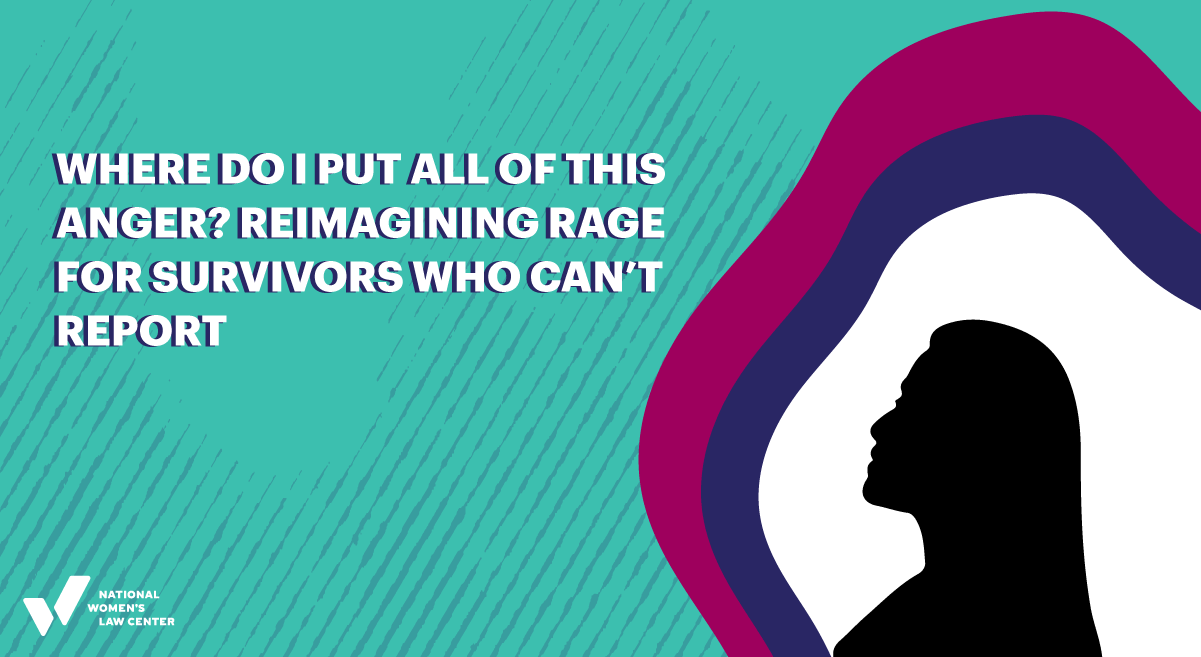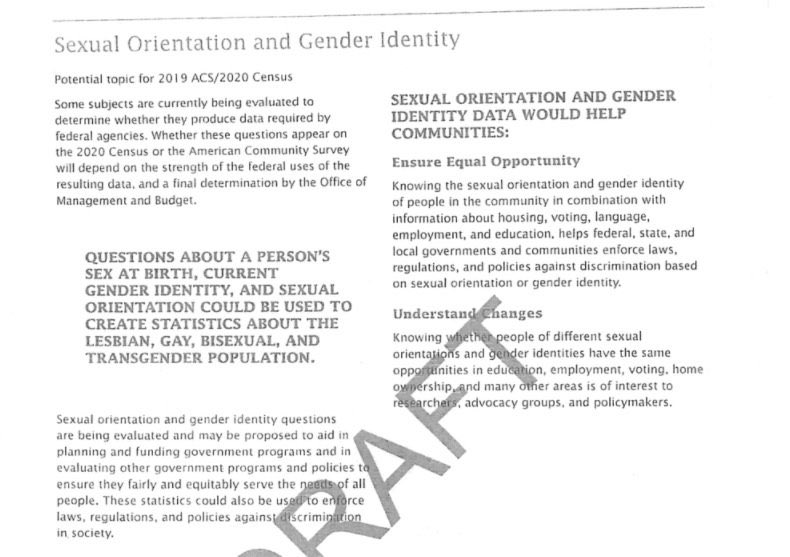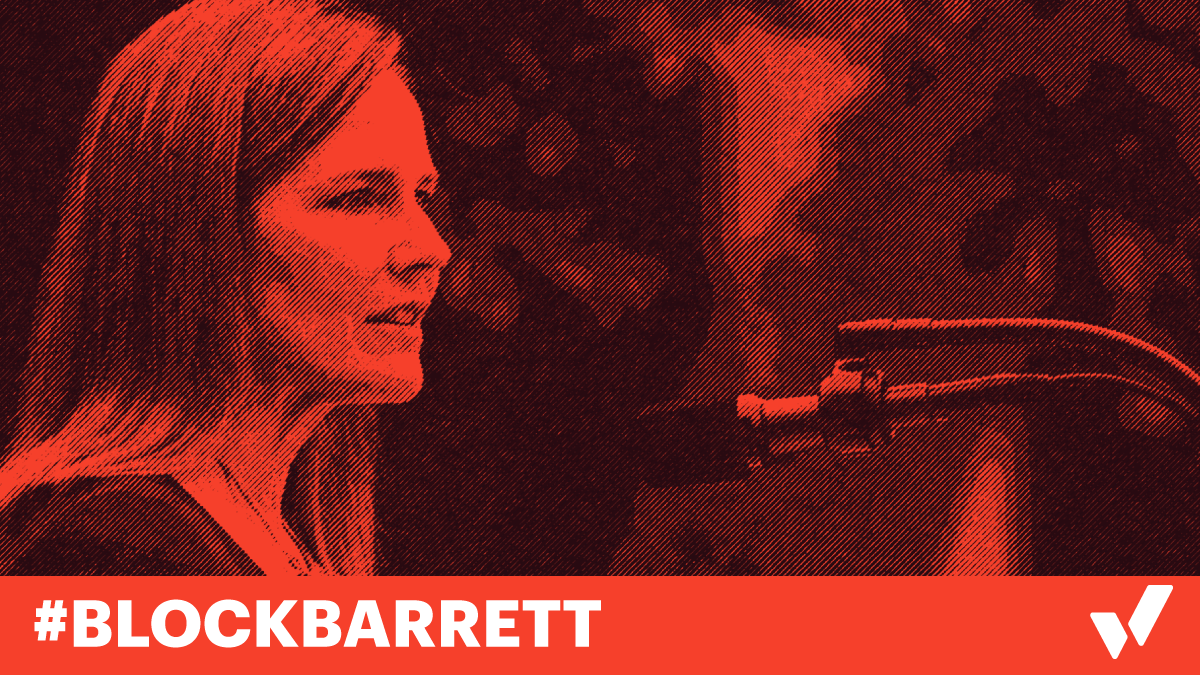Abortion rights, women of color, and LGBTQI+ people are under attack. Pledge to join us in fighting for gender justice.
Where Do I Put All of This Anger? Reimagining Rage for Survivors Who Can’t Report

TW: Mention of sexual violence.
“Writing is a form of self-defense.”
Chanel Miller, writer, artist, and anti-sexual violence advocate said this recently at a book talk for Know My Name. She went on to explain that writing, for her, is a way “to hold onto things when I feel like they’re taken from me.” We have that in common! Not only that, but the way she spoke to the imagination and creativity required to find self-defense, retribution, and healing in a system stacked against survivors struck a chord with me. As a survivor who can’t report, like so many others, I must create these experiences for myself outside of the justice system or the public eye.
Why do survivors choose not to report? The better question is why so many survivors feel they can’t:
- The preference for signed NDAs over punishment for abusive members of the workplace, from Hollywood to your average office.
- White supremacist stereotypes about men of color—specifically, Black, Latino, and Middle Eastern/North African men—being inherently dangerous to (white) women, causing survivors in those communities to weigh the safety of their community against possible justice against an abuser.
- The grueling, rarely trauma-informed process of seeking justice, whether it be in a university setting or in criminal court.
- The inescapable anxiety over possible revenge or further abuse from our perpetrator were we to “go public”.
- The dogged insistence of our acquaintances, coworkers, peers, and even friends and family to respond to our disclosure with, “No, really? Them? I don’t think so, they don’t seem like that kind of person. Are you sure you didn’t misconstrue what happened?”
Our racist, patriarchal, often violent structures and society at large are not built for survivors to feel safe, heard, and heal. So, we must try to do it on our own, whether it be in community with other survivors and advocates, or alone in the walls of our own home. Rage is an important part of the journey of survivorship, however, what do I do with all of mine when it feels like I have nowhere to put it?
Rage inherently feels part of the public sphere. Many iconic moments in women’s rage have been public displays. Our cultural imagination of rage and anger seems to require an audience to be valid or properly expressed. For me, I want to take up kickboxing. I want to sprint for miles. I want to scream “I HATE YOU” into the ocean. But these idealized, TikTok-audio-backed ways we may conceptualize the “act” of rage don’t really line up with the experiences of women during this pandemic. Don’t really line up with being a survivor.
I believe rage is self-care, community care, and a path to liberation. Women’s History Month at the Law Center is all about reframing rage in a positive light, and how it has been a driving force in the advancement of gender justice throughout history. So, I like to reimagine my rage—toward abusers of the past, rape apologists, rape culture, and honestly, the violence of misogyny in general—as the simple acts I take to achieve healing.
Rage is going to therapy. Rage is speed-typing poetry in my Notes app and sending it to my close friend, who always, always responds. Rage is digging my now-retired ballet slippers out of a box in my closet to frantically improv dance in my dining room when my housemates are asleep. Rage is walking for miles through the woods, alternating between crying and lip-syncing under my mask to my six-hour bad b*tch playlist. Rage, honestly, is just honoring the fact that I’m MAD! My rage is individual, yes, and it cannot look like the acts of so many iconic, rageful feminists before me, but I like to think it works toward the same goal—freedom.
Sometimes, rage cannot be big or loud or earth-shattering—for the safety of yourself and others. Sometimes, rage is the feminist act that only we see, but this does not make it any less important.
Survivor, I see you. I see your rage even if it is kept under the surface. Even if you, too, can only let it out in the privacy of your bedroom, I want you to know it is still powerful. And I hope our collective, silent rage will be the thing propelling us to that safer, softer world we’re dreaming of.





